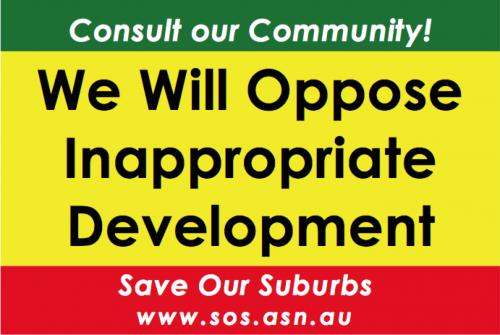Planning Minister Guy has introduced into Parliament the Planning and Environment Amendment (VicSmart Planning Assessment) Bill 2012.
Download the text of the changes proposed by the Bill here
Download the explanatory version of the Bill here
COMMENT:
Continuing to bolster the construction industry is not producing the degree of economic flow-on effect the government has hoped for. Finance for many development proposals is harder to obtain and many proposals with permits remain unbuilt. Land banking by large developemnt corporations is sustaining unaffordable house prices, the housing market remains flat and the population growth rate peaked in December 2008.
Consequently, this slowdown is the ideal time not to weaken planning controls but to strengthen them to ensure that appropriate development is channeled to appropriate locations in the long-term community interest, especially with the pressing need for development to be more sustainable in light of climate change, peak oil, transport congestion and other inadequate infrastructure.
VicSmart is to apply only to minor proposals. This will have little effect on the efficiency of overall council assessments because simple cases are already assessed quite quickly once planners finish assessing prior complex applications in their in-tray. But introducing these changes now would legitimise a process that with minimal further modification could be applied later to more complex cases as well.
Denial of third party notification and appeal rights is undemocratic and counter-productive. The majority of appeals currently clogging up the VCAT system are not lodged by resident objectors but by developers seeking to modify or anticipate Council decisions. However, resident appeals have a provable benefit. VCAT statistics show that the majority result in extra conditions, with some proposals being refused altogether as unsuitable – both by definition better planning outcomes.
Consequently, resident oversight is vital in curbing non-compliant proposals and helping ensure that council decisions are more consistent and more accurate (which is often not the case, as per the VAGO report of May 08).
However, while we are strongly in favour of third party rights, it is also unjust and inefficient that such an important area of law and business is reliant on random volunteer resident oversight to help improve probity, consistency and appropriate outcomes. No other government sector works like this.
Clearly, more mandatory controls based on existing democratically-derived planning regulations is the simplest, quickest and best way to minimise delays and costs for all applications, not just minor proposals under simplified deregulated VicSmart criteria. Wider prescription of existing controls across the board would also eliminate ambit claims and guarantee better and more appropriate built outcomes.
Mandatory controls would also automatically mean far fewer appeals and fewer delays and costs for all parties. However, the appeal avenue should remain open to both applicants and residents to deal with the few inevitable cases where due process was not properly followed by Council or where the decision was based on incorrect or incomplete information in the application – an oversight function necessary in any democracy.
Ostensibly the only ground of appeal for VicSmart cases would be failure by council to decide the application within the 10-day decision time, but it's not cost-effective now to appeal minor applications, so there will be little reduction in these sorts of appeals under VicSmart.
Existing loopholes are already exploited by unscrupulous developers. So it’s common sense not to rely on the naïve assumption that developers will provide accurate details with their VicSmart applications, especially since councils will be prevented from requiring further information and these applications will be assessed by non-planners.
Hence it is imperative that the Parliament resists these proposed changes.
Contact your local MP to warn them that this legislation is a potentially dangerous and unnecessary erosion of democratic rights which will reduce transparency and produce worse planning outcomes. It will also set a precedent for future legislation dealing with more complex planning applications such as apartment blocks.
For further comment on VicSmart, see our media release on VicSmart from June 12.

